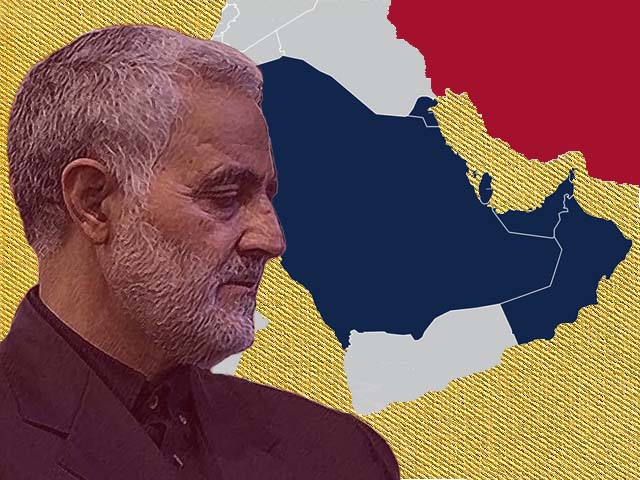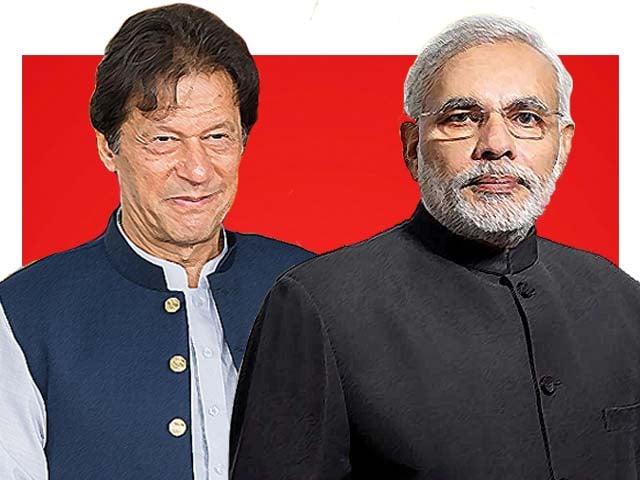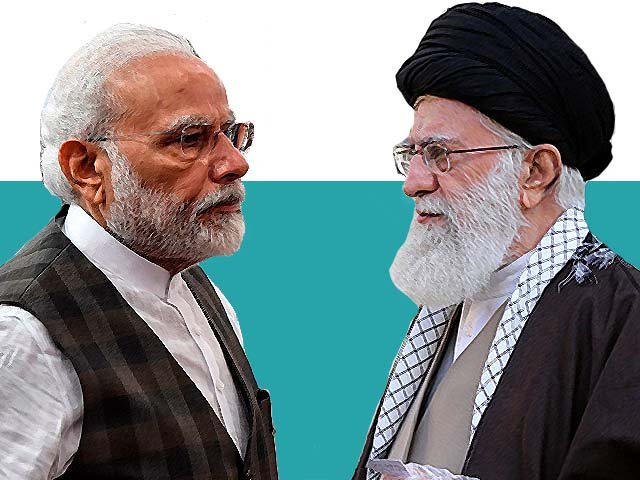
Who really wants the US-Iran war?
Manufacturing a threat to justify a war against Iran has been on the Israeli agenda since the 1979 Revolution
The tussle between Iran and the United States of America nearly reached a boiling point after the aerial assassination of Iran’s General Qassem Soleimani in Baghdad on January 3rd. Immediately, the Gulf states pleaded for urgent de-escalation, knowing full well that a conflict could be disastrous for all the countries close proximity to Iran. Even the Saudis made it abundantly clear that they played no part in the deadly drone strike which claimed 10 lives. The USA duly obliged and President Donald Trump’s speech, after Iran’s limited missile attack on US bases in Iraq, was marked by restraint.
The Gulf Cooperation Council’s (GCC) clearly did not like the prospect of facing an Iranian missile onslaught, which would be heavier than what it faced with the Aramco attack months ago. The Gulf states have slowly, but surely started to fall victim to war-weariness after an unsuccessful Yemen campaign, where the pro-Iran ‘Houthi’ group is now stronger than ever. In fact, to put Houthi strength into context, Saudi Arabia wanted to de-escalate the situation with Iran even before Soleimani’s assassination, primarily due to repeated Houthi strikes.
Even in Yemen’s non-Houthi administered areas, the anti-Houthi coalition is plagued by in-fighting and the frequent break-down of the shaky truce pacts that are meant to keep it together. Therefore, the question remains; if both Saudi Arabia and the United States are suing for restraint with Iran, who is attempting to the light the tinder box?
The answer is evidently Israel and the series of Zionist organisations in the US which helped create and actively sustain it. It is difficult to find any actor genuinely interested in a US-Iran war aside from Israel and Israel’s US lobby, which has taken great pains to ensure anti-war voices within the US are smeared, isolated and quashed as it promotes a US war with Iran.
Legal limits have also not perturbed Israel from doing anything it can to get the US to attack Iran. In June 2005, a Pentagon Iran analyst, Larry Franklin, was caught by the FBI trying to pass on classified information regarding security threats to US troops in Iraq to senior officials of the American Israeli Public Affairs Committee (AIPAC).
Franklin met the officials at a restaurant outside Washington. The restaurant had already been bugged by the FBI and so, the analyst was heard claiming that he possessed information about Iran-affiliated groups in Iraq planning to attack US troops. The AIPAC officials intended to provide the information to The Washington Post reporters so that a public push for war with Iran could gain momentum.
AIPAC championed this agenda for a long time for the sake of Israel. Its intentions have always been clear - have the US take Iran out of the equation, regardless of the disastrous global implications that it might cause. This, of course, involved portraying Iran as an aggressive state practicing anti-US policies and also claiming that it had a nuclear weapons programme to boot.
Manufacturing an Iranian threat to justify another war in the Persian Gulf has been on the Israeli agenda since the Iranian revolution. Despite repeated verifications by the International Atomic Energy Agency (IAEA) and even US intelligence agencies that Iran is not actively pursuing weapon-grade uranium enrichment, the Israeli Lobby has campaigned since the 1980s to present Israeli claims about Iran’s alleged nuclear weapons ambitions as facts. These attempts are exemplified by incumbent Prime Minister Benjamin Netanyahu who has, time and again, made the claim that Iran will possess the bomb within three to five years with the the first prediction dating back to 1992.
In Chapter 1 of his seminal book Big Israel: How Israel’s Lobby Moves America, director of the Institute for Research: Middle Eastern Policy Grant F Smith writes in great detail about the role of the Israel Lobby in the manufacturing of the Iran nuclear scare.
“Though not accurately reflected in mainstream media, the entire Iran nuclear scare was largely a “manufactured crisis” that focused pressure on Israel’s regional rivals and away from the longest running - and arguably most damaging to the US — regional conflict between Israel and Palestine. That a primary objective of many such IAO (Israel Affinity Organisation) initiatives is to divert attention away from the problems created by Israel is a perception increasingly gaining traction among informed Americans.”
Such IAOs have become extremely prominent, both with regards to media campaigns and the lobbying of the US Congress. Examples include United Against a Nuclear Iran (UANI), whose advisory board included former Mossad chief Meir Dagan until his demise in 2016. UANI specialises in public smear campaigns against entities it baselessly accused of conducting business with Iran in contravention with US sanctions. The Foundation for the Defense of Democracies (FDD) was exposed by a 2017 Al Jazeera undercover documentary-investigation of the Israel Lobby. The expose discovered that the FDD was covertly colluding with the Israeli intelligence and actively spying on US citizens who were supporting Palestinian human rights and criticising Israel.
The reason Israel wants Iran subdued is evident: Iran supports armed movements preventing Israeli consolidation and expansion of its frontiers. Groups such as Hamas and Islamic Jihad in Gaza and Hezbollah in Lebanon have expanded their rocket and missile stockpiles considerably over the years, owing to a constant supply of ordinance and training from Iran.
Therefore, the ultimate goal is to punish Iran for the alliances it has with different militias in the Middle East. The Israel Lobby has often attempted to discredit voices of sanity that have seen through its nefarious agenda and has even utilised its sizeable influence over the US Congress to do so. It is important to remember that AIPAC galvanises large amounts of funds during electoral cycles for senators sympathetic to their cause.
Professor Kirk Beattie of the Political Science and International Relations Department at Simmons College in his 2015 book Congress and the Shaping of the Middle East describes Congress’ stunning Israeli-centric opposition to then-President Barack Obama’s diplomacy with Iran which culminated in the short-lived Iran nuclear deal (2015-18):
“Meanwhile, before any agreement with Iran was hammered out, some forty-seven US senators took the extraordinary measure of penning a letter to Iran’s leaders, forewarning them that any deal struck by Obama and his foreign allies would meet with fierce opposition from Congress. The acrimonious relationship between the American president and his own Congress was played out under the lights of global media. It highlighted the strong bond between many members of Congress and Israel, the power many members of Congress possess to obstruct presidential foreign policy making, and those congresspersons’ willingness to exercise that power when it comes to matters affecting the Middle East. In short, all of these points serve to reinforce the value of arriving at a deeper understanding of Congress, and what motivates the behavior of US congresspersons who are shaping US Mideast policy.”
What happened with the deal and diplomacy in general between then and the recent flare-up in US-Iran tensions is plainly visible.
For the Gulf Arabs, physically the most proximate to Iran’s missiles out of all Iran’s rivals, the lust for war exhibited by Israel and its lobbyists is not visible. Their relationship to the US is nothing like that of Israel’s, who is confident it can continue to use the US as its bludgeon to punish states with no natural dispute with the US but who come in the way of Israel’s aggressive expansionist schemes.




COMMENTS
Comments are moderated and generally will be posted if they are on-topic and not abusive.
For more information, please see our Comments FAQ